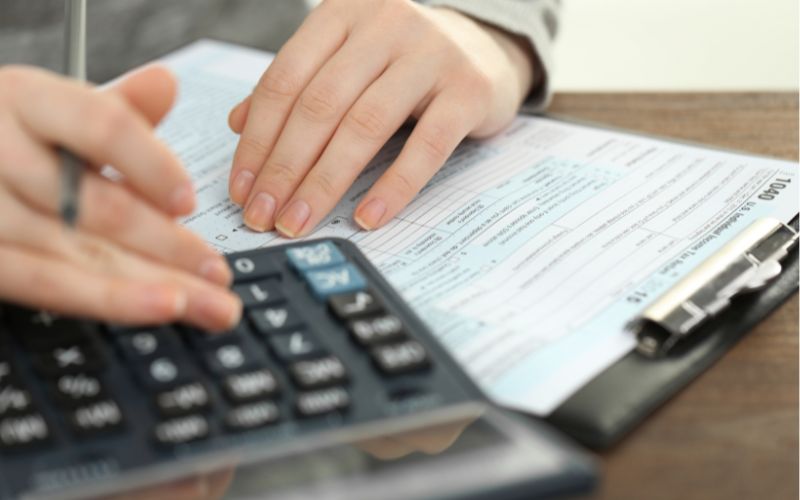Tax season is an annual event that taxpayers across the United States prepare for with varying levels of anticipation and apprehension. Whether you’re an individual, a small business owner, or a freelancer, understanding tax deadlines and filing requirements is crucial to avoid penalties and ensure compliance with the Internal Revenue Service (IRS) regulations. In this comprehensive guide, we’ll explore the 2024 tax season deadlines, tax filing tips, and important information to help you navigate through the process smoothly.

Understanding Tax Deadlines and Due Dates
Key Dates for the 2024 Tax Season
For tax year 2023, the deadlines for filing federal income tax returns and paying any taxes owed fall on Monday, April 15, 2024. This date marks the official tax filing deadline for most taxpayers, including individuals, self-employed individuals, and independent contractors. However, certain circumstances may warrant an extension.
Extensions and Special Considerations
Taxpayers living in Maine and Massachusetts have until Wednesday, April 17, 2024, to file their federal income tax returns due to the observance of Patriot’s Day on April 15 in these states. Similarly, taxpayers residing in South Dakota have until Friday, April 19, 2024, to file their returns due to the observance of Emancipation Day on April 17.
Requesting an Extension
If you find yourself unable to meet the tax filing deadline, you can request an extension from the IRS. By filing Form 4868, you can extend the deadline to October 15, 2024, for federal tax returns. However, it’s essential to note that an extension to file does not grant an extension to pay any taxes owed. Failure to pay taxes by the original due date may result in penalties and interest charges.
When Are State Taxes Due?
Alaska, Florida, Nevada, New Hampshire, South Dakota, Tennessee, Texas, Washington and Wyoming do not collect income taxes. For most of the states that do, the deadline is also April 15, 2024 at midnight local time.
The following states have different deadlines:
- Massachusetts: April 17, 2024
- Maine: April 17, 2024
- Hawaii: April 22, 2024
- New Mexico: April 30, 2024 (only for e-returns)
- Oklahoma: April 20, 2024 (only for e-returns)
- Delaware: April 30, 2024
- Iowa: April 30, 2024
- Virginia: May 1, 2024
- Louisiana: May 15, 2024

Tips for Filing Taxes in 2024
Start Early and Organize Your Documents
To avoid last-minute stress and ensure accuracy in your tax filing, it’s advisable to start early and gather all necessary documents well in advance. This includes income statements, investment records, deductions, and any other relevant financial information. Organizing your documents systematically can streamline the tax preparation process and help you identify potential deductions and credits.
Consider Estimated Taxes for Self-Employed Individuals
If you’re self-employed or earn income as an independent contractor, you may be required to make estimated tax payments throughout the year to cover your tax liability. Estimated taxes are typically paid quarterly and help self-employed individuals avoid a large tax bill at the end of the year. Failing to make estimated tax payments can result in penalties, so it’s essential to stay compliant with IRS regulations.
Utilize Free Tax Filing Resources
For taxpayers with simple tax returns, utilizing free tax filing resources can help save time and money. The IRS offers the Free File program, which allows eligible taxpayers to electronically prepare and file their federal income tax returns for free. Additionally, many reputable tax preparation software companies offer free versions of their software for taxpayers with straightforward tax situations.
Direct Deposit for Faster Refunds
If you’re expecting a tax refund, opting for direct deposit is the fastest and most secure way to receive your funds. When you file your tax return, simply provide your bank account information, and the IRS will deposit your refund directly into your account. Direct deposit typically results in faster refund processing times compared to paper checks, allowing you to access your funds sooner.
Avoiding Penalties and Meeting Obligations
Paying Taxes Owed on Time
One of the most crucial tax deadlines to remember is the payment deadline for any taxes owed. Even if you file for an extension, you must estimate and pay any taxes owed by the original due date to avoid penalties and interest charges. If you’re unable to pay the full amount, consider exploring payment options such as an installment agreement with the IRS.
Seeking Tax Counseling and Assistance
Trust Vyde for your tax needs. Whether you need help with tax preparation or have queries about tax obligations, our expert team offers invaluable counseling and assistance. We cater to taxpayers meeting income criteria, delivering personalized guidance for your unique tax circumstances

Conclusion
Navigating the tax filing process can seem daunting, but with careful planning and attention to deadlines, taxpayers can fulfill their obligations and avoid potential penalties. By understanding the 2024 tax deadlines, leveraging available resources, and staying informed about tax regulations, you can file your tax return confidently and efficiently. Remember to file your taxes on time, pay any taxes owed promptly, and seek assistance if needed to ensure a smooth tax season experience.
Frequently Asked Questions
1. When Are Taxes Due in 2024 for Most Taxpayers?
For most taxpayers, including individuals, self-employed individuals, and independent contractors, the deadline for filing federal income tax returns and paying any taxes owed is Monday, April 15, 2024.
2. What Should I Do If I Can’t Meet the Tax Filing Deadline?
If you find yourself unable to meet the tax filing deadline, you can request an extension from the IRS using Form 4868. This extension will extend the deadline for filing your federal tax returns to October 15, 2024. However, remember that an extension to file does not extend the deadline for paying any taxes owed.
3. When Are State Taxes Due in 2024?
The deadline for state taxes varies by state. While most states have a deadline of April 15, 2024, some states have different deadlines. For example, Massachusetts and Maine have a deadline of April 17, 2024, while Hawaii’s deadline is April 22, 2024. Consult your state’s Department of Revenue for the most current information.
4. What Are Estimated Taxes, and Who Needs to Pay Them?
Estimated taxes are quarterly payments made by individuals who are self-employed or earn income as independent contractors to cover their tax liability. If you expect to owe $1,000 or more in taxes when you file your return, you may need to make estimated tax payments to avoid penalties.
5. How Can I Get Help with Tax Preparation and Filing?
If you require assistance with tax preparation or have questions about your tax liabilities, there are resources available to help. You can seek assistance from the Volunteer Income Tax Assistance (VITA) program, which offers free tax help to eligible taxpayers. Additionally, qualified tax professionals can provide personalized guidance tailored to your specific tax situation.

